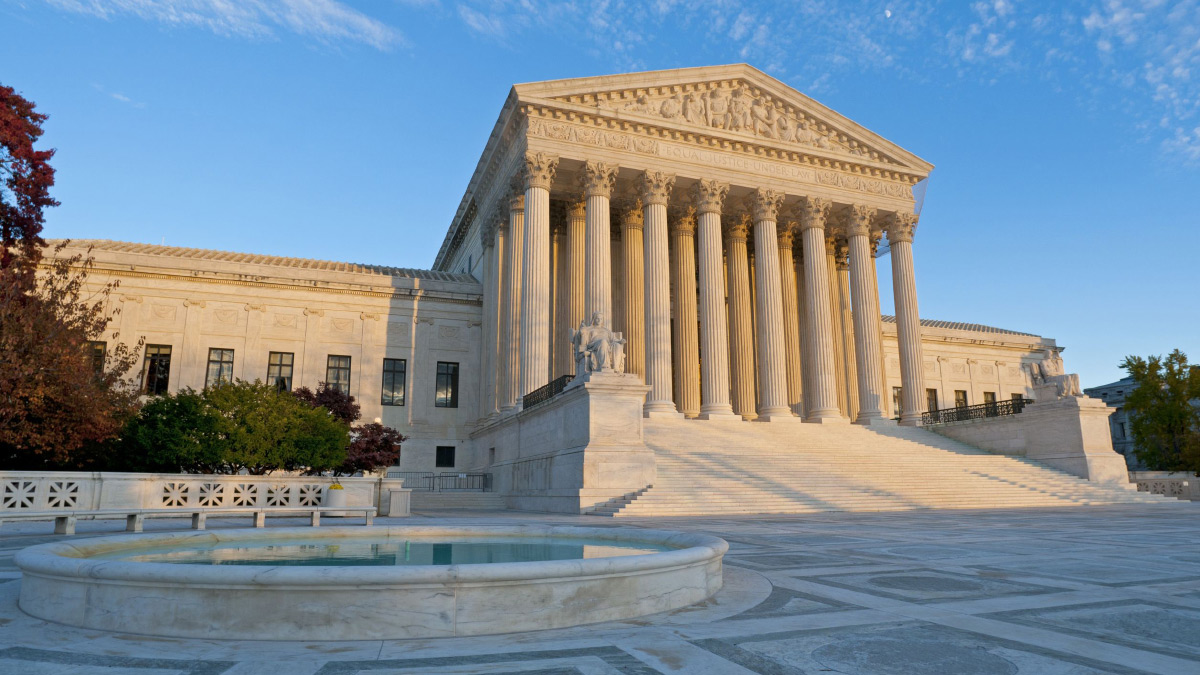The American experiment with self-government is on life support. A key measure of its demise is the apoplectic reaction to the retirement of Supreme Court Justice Anthony Kennedy. Writing in Time, same-sex marriage advocate Jim Obergefell warns that “the civil rights of millions of people are in serious risk.” Ilyse Hogue, president of a national pro-choice organization, predicts that “vicious anti-woman activists” will transport America back into the 19th century. “We will not and must not accept” such a result, Hogue inveighs. Other commentators make similar dire prognostications about affirmative action in college admissions, voting rights, and application of the death penalty.
From the rhetoric, an observer unfamiliar with current American politics would think that Kennedy must be a shrewd congressional leader capable of corralling supermajorities to push through legislative programs. Or perhaps he is the nation’s chief executive, brought into office with a landslide victory, and shaping American domestic policy with an uncanny vision for the future.
Of course, Kennedy is not an elected official. Instead, he is one member of the Supreme Court—top of a national judiciary that Founding Father Alexander Hamilton in Federalist No. 78 claimed would be “the least dangerous” branch of government, restricted by a “natural feebleness” and unable to endanger “the general liberty of the people.”Unfortunately, the modern Supreme Court looks nothing like the picture Hamilton painted. In our post-constitutional order, it is the “Big Show” where the most important policy decisions are made for the country. Although our abused and forgotten written Constitution mentions nothing about marriage, abortion, or college admissions, the Court calls the shots on all these matters.
In years past, Americans generally understood that when the Constitution does not grant the national government a specific power over an issue, that issue is left for the people to decide in their respective states. Indeed, the Tenth Amendment dictates that “the powers not delegated to the United States by the Constitution, nor prohibited by it to the States, are reserved to the States respectively, or to the people.” In the words of the great Supreme Court Justice Louis Brandeis, the states should serve as “laboratories of democracy” where local governments can experiment with a variety of policies and tailor legislation to unique indigenous circumstances.
Unfortunately, our national elites have ceased to view America as a grouping of self-governing communities and states united for certain definite objectives. They see the United States as a unitary state no different in powers from Great Britain, France, or Russia.
And as citizens of a unitary state, the Obergefells and Hogues cannot fathom living in a country where one-size-fits-all rules and remedies are eschewed for policy experimentation. Nor do they have the patience to build broad political coalitions to enact their preferred policy preferences. Instead, they depend on the Supreme Court to hand them victories in the guise of law.
Unlike in the past, for example, the case of women’s suffrage, today few are willing to invest democratic sweat equity to bring about constitutional change. Instead, they turn to the High Court to create and impose policy on the country. When a justice retires, there is a mad political scramble to secure a nominee who will preserve what has been won through the favored extra-constitutional channels. Thus, the current brouhaha over Justice Kennedy’s recent announcement.
If democratic muscles aren’t used, they will atrophy. If constitutional bones that provide structure aren’t nourished, they will break. Unfortunately, what remains of our grand federal experiment in self-government features desiccated muscle tissue and fractured constitutional safeguards such as the venerable Tenth Amendment.
The Supreme Court should not be the most consequential branch of government tasked with shaping policy for all 50 states and 325 million Americans living in diverse communities. Its members are unelected, unaccountable, and unfamiliar with the circumstances of ordinary Americans.
To the extent that Americans continue to depend on the court to decide basic policy issues, we will have to take the patient off life support. A political system accepting the rule of nine lawyers is not one worth resuscitating.












